Don't know which tog duvet to buy? These are the best togs for summer, winter and all-season use
No more guessing games required – how to choose the right duvet tog according to bedding experts

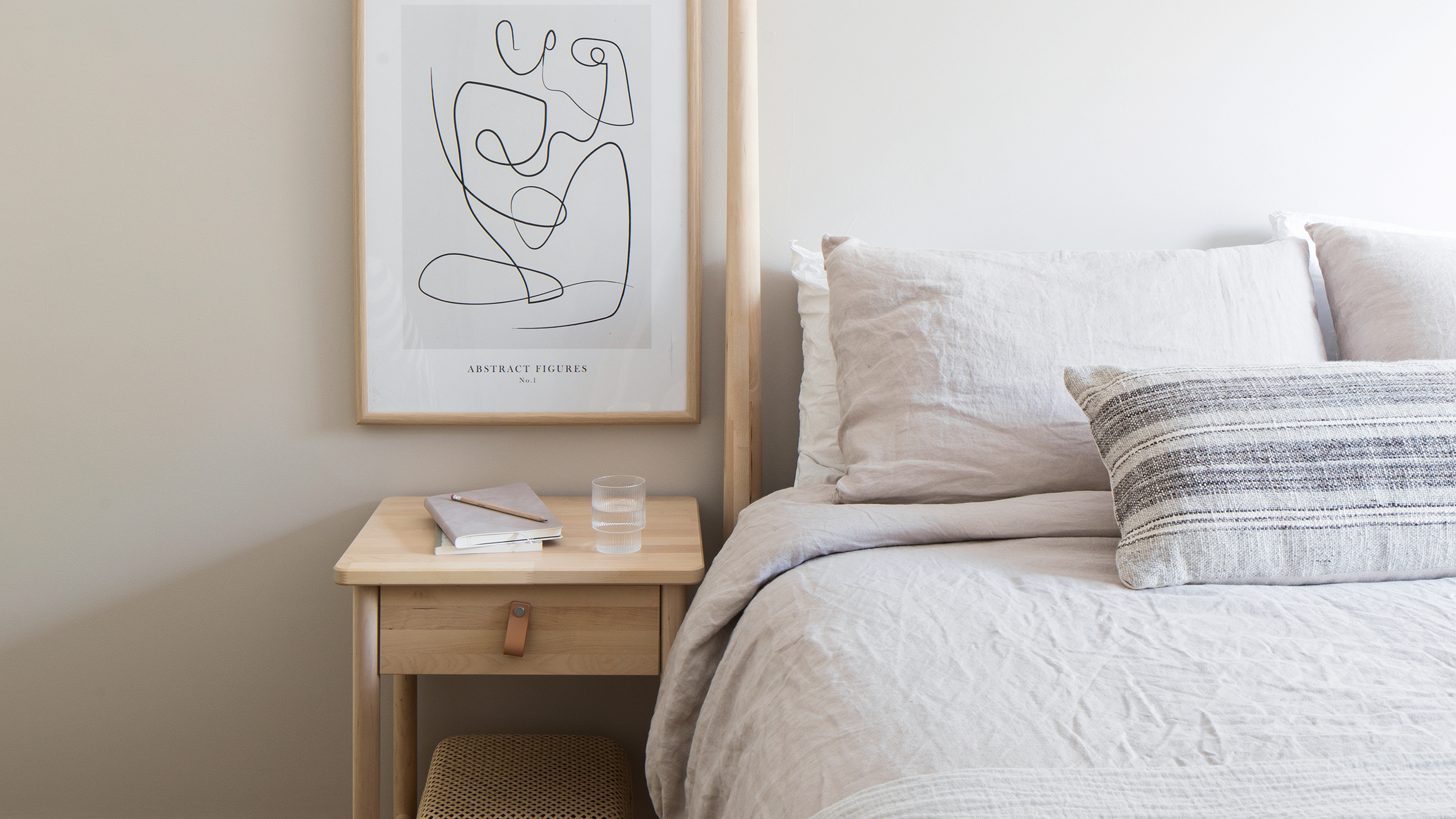
If you’re not sure which tog duvet to buy, you’re not alone. The right duvet can make or break a good night's sleep, but, unfortunately, many of us unintentionally end up investing in the wrong tog duvet and can find ourselves tossing and turning as a result. That’s why we want to take the hassle out of buying a new duvet.
After all, we’ve tried and tested some of the best duvets on the market at Ideal Home so we’re well-versed in how the right duvet can complement the best mattress. However, we also know just how complicated the duvet-buying process can be.
From choosing the best duvet filling to finding the right duvet size for your bed, things get even more difficult when you see just how many duvet tog ratings there are.
But what do these tog numbers mean, and how do you know which tog to opt for? Don’t worry. To help you avoid any duvet-buying mistakes, we’ve spoken to multiple sleep experts to get to the bottom of which tog duvet is best for you and your sleeping habits.
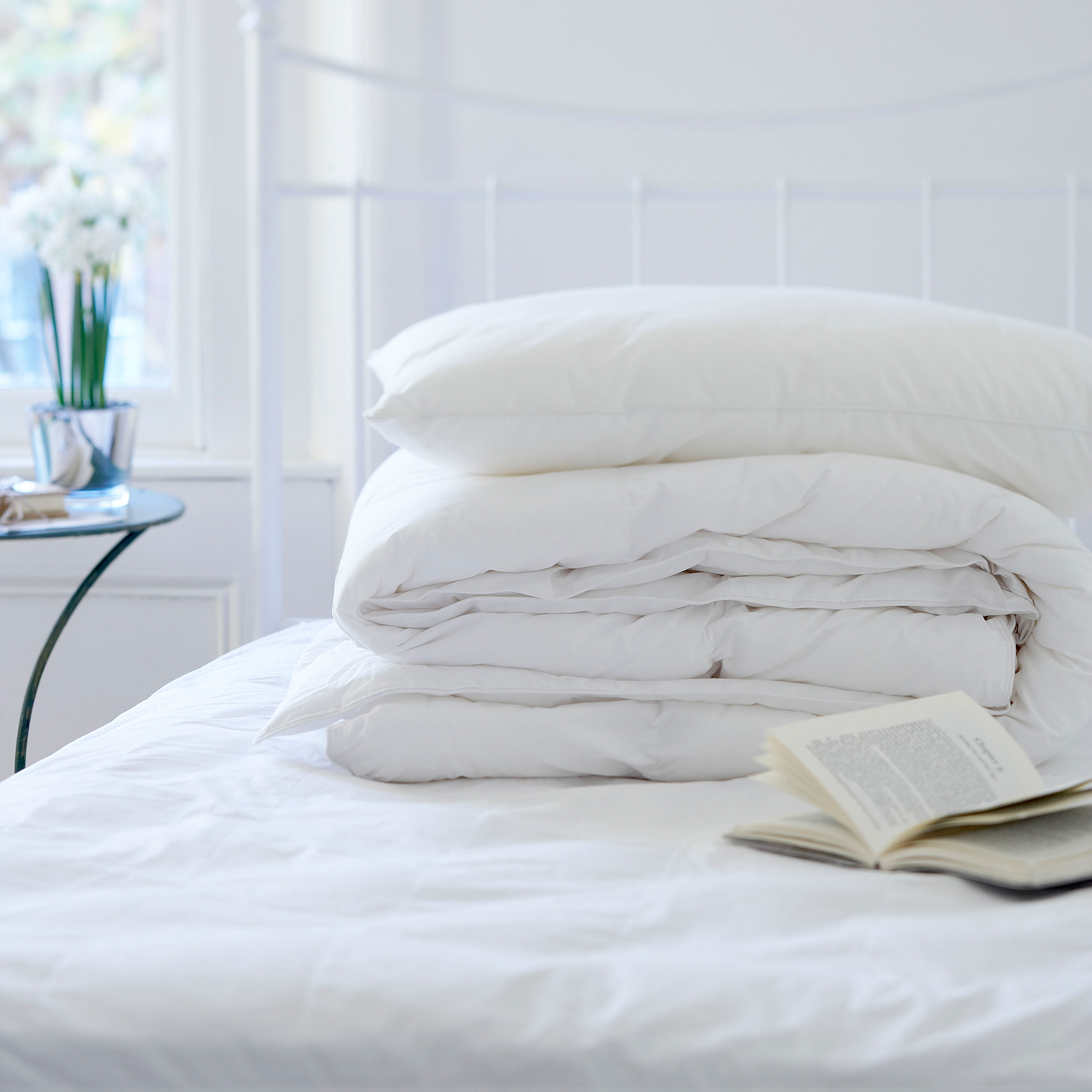
What tog duvet to buy
Before we begin covering what tog duvet to buy, it helps if we understand what a duvet tog rating actually is. As such, I asked multiple sleep and bedding experts to share their knowledge.
What do duvet tog ratings mean?
So, first things first. What is a duvet tog? 'The tog rating is a scale measuring the thermal insulation of a duvet, so the higher the tog rating, the warmer the duvet will be,' explains Emily Attwood, founder of luxury feather and down bedding brand scooms.
'A tog is essentially the measure of thermal resistance, or how well the filling is protecting you against external factors, like the cold' agrees Chris Tattersall Managing Director of wool bedding brand Woolroom.
Sign up to our newsletter for style inspiration, real homes, project and garden advice and shopping know-how
'Duvet togs can start from as little as 1 tog at the coolest end of the scale', explains Ideal Home's Sleep Editor, Amy Lockwood, 'and go up to 15 togs for the warmest duvets. Although I have seen all-season duvets that combine to give 18 togs of warmth in all'.
We've listed the most common duvet tog ratings in the table below:
| Coolest | Header Cell - Column 1 | Header Cell - Column 2 | Header Cell - Column 3 | Header Cell - Column 4 | Warmest |
|---|---|---|---|---|---|
| 3.5 tog | 4.5 tog | 7 tog | 10.5 tog | 13.5 tog | 15 tog |
'When you’re shopping for a duvet, you should look at purchasing a higher tog for the colder months to keep you warm, and a lower tog for the warmer months to help keep you cooler', continues Emily.
Overall, it's important to remember that a duvet tog is about the insulation level of the duvet and has nothing to do with the duvet's thickness (although, naturally, the warmest duvets are also often the thickest).

What tog duvet is best for winter months?
So what's the best tog duvet for the winter months? Well, on top of potentially sizing up your duvet so you have more coverage to tuck around you and keep out any draughts (particularly if you share a bed with a duvet hog!), you'll want a duvet with a higher tog rating in winter.
'We’d always advise a 9 tog to 13.5 tog for the winter months as this is ideal and will keep you warm,' says Emily from scooms. 'If your house is always on the warmer side, then a 9 tog duvet would probably suit you better throughout the winter months, and you wouldn’t want to go any higher. This will prevent you from overheating which can disrupt your sleep.'
'When choosing a winter duvet tog it's also important to consider your own inner thermostat', recommends our Sleep Editor, Amy. 'Experts advise that keeping your bedroom temperature between 16 and 18°c can help you to sleep better, but you'll also want to consider if you're a hot or a cold sleeper when choosing a winter duvet tog.
'I'm a hot sleeper, so I find a 10.5 tog to 13.5 tog duvet best for winter, but colder sleepers may prefer a 13.5 tog to 15 tog option', Amy continues. 'Additionally, you can always choose a more mid-level tog duvet for the winter months and layer on your favourite throws when the temperatures really drop'.
'For sleepers looking to ensure extra warmth for the winter months, the ideal duvet tog for winter is between 13.5 and 15' agrees Chris from Woolroom.
Wondering when you should switch to a winter duvet? Well, obviously you can change as soon as you start to get chilly at night, but the official advice is to do so when nighttime temperatures drop to below 15°C. We've rounded up three of our top-rated winter duvets below.
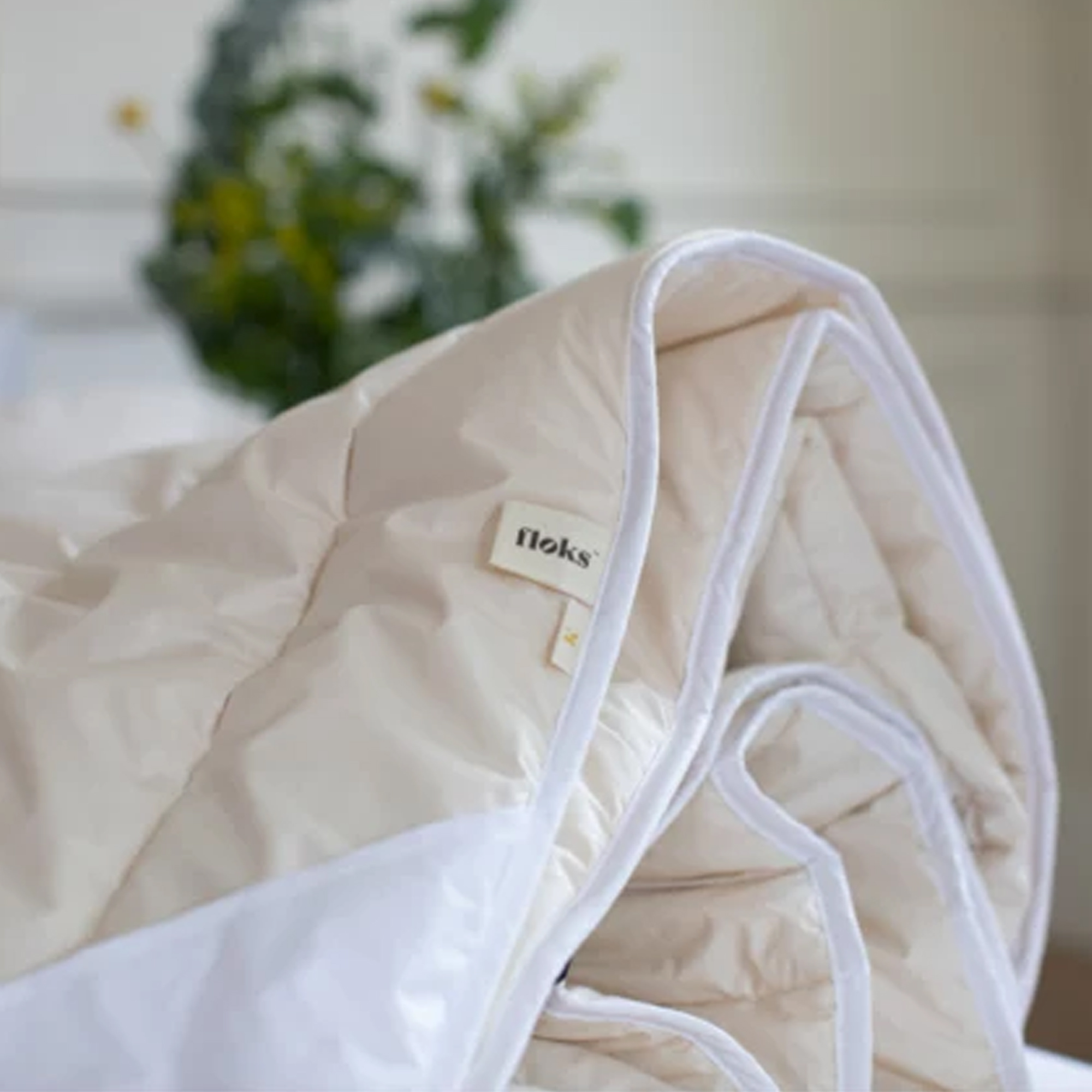
Our Sleep Editor's top recommendation, this wool-filled winter duvet is super cosy and brilliantly breathable meaning it offers great temperature regulation without causing overheating.
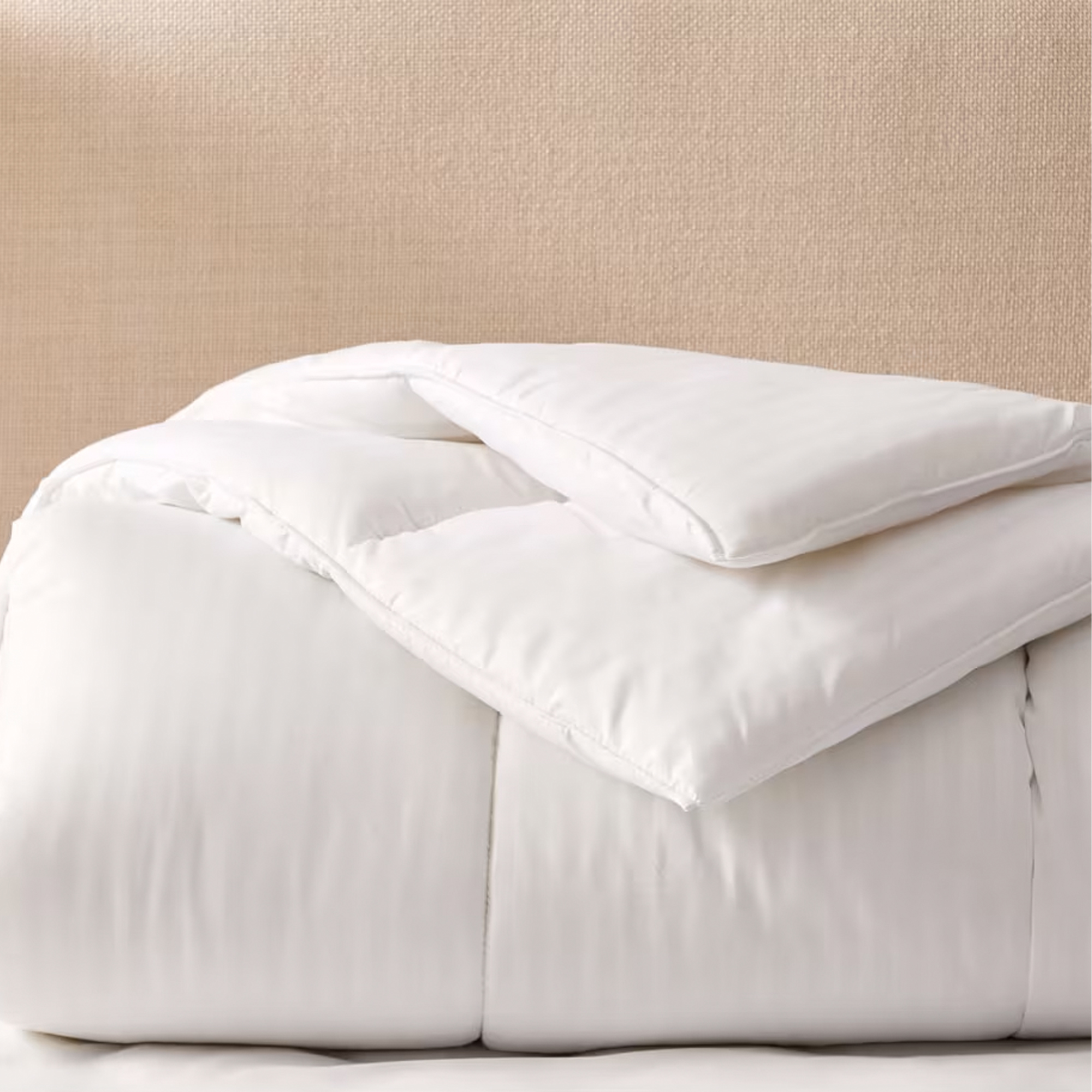
Alternatively, if you're not someone who's prone to overheating then this synthetic winter duvet is a far more affordable option, and it's easy to care for. Just bung it in the washing machine 40°C.
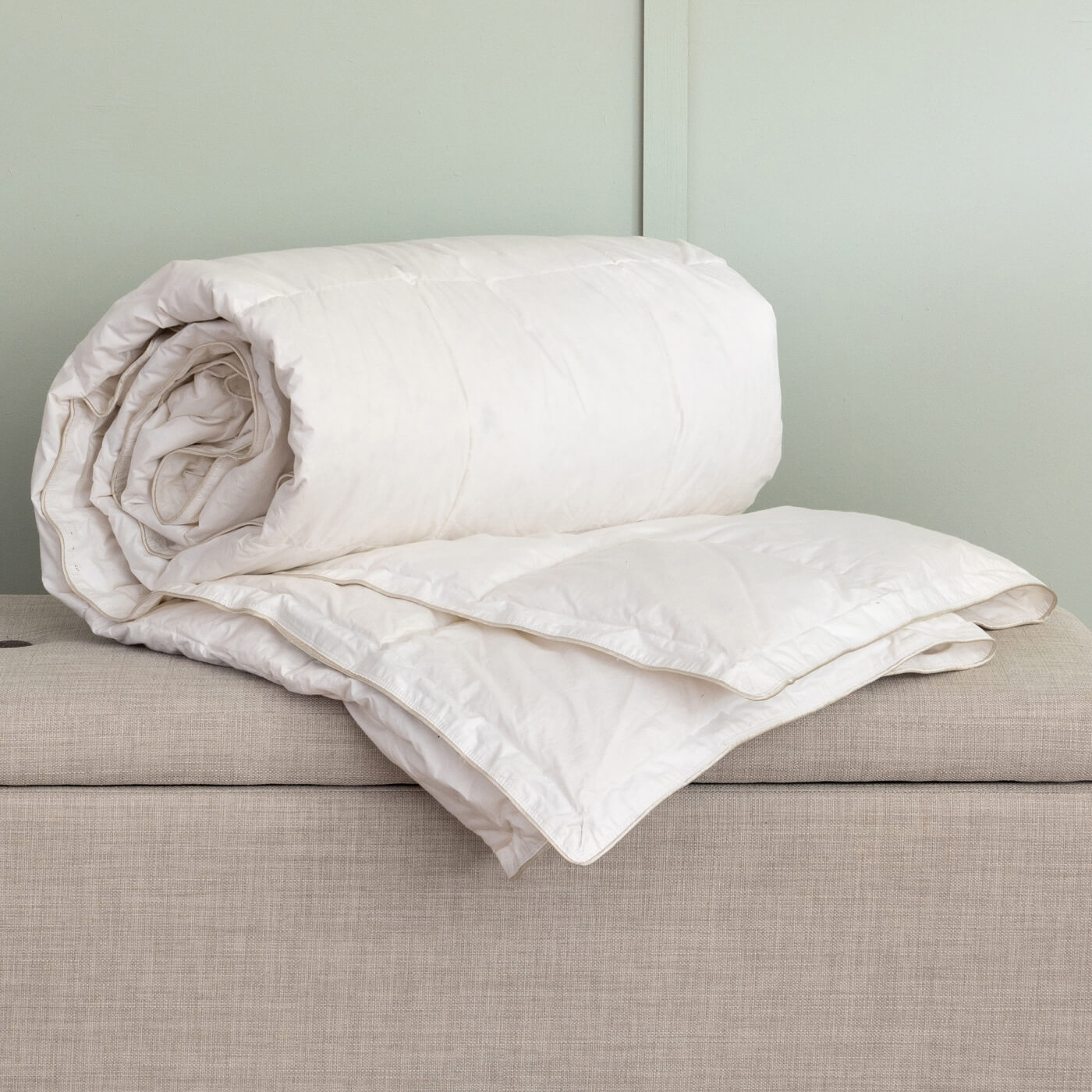
For the most luxurious sleep, nothing rivals the squashy feel of a goose down duvet and this is one of the best we've tested. It's super warm and feels like a cloud on the bed.
What tog duvet is best to use in the summer?
Alternatively, which duvet tog is best for summer? While some people eschew duvets altogether in the summer, many of us like the comfort of one, so it's important to find the right tog duvet to offer this without overheating should a heatwave arise.
'We’d advise having a different duvet for summer and winter, so during the warmer months we’d recommend a low tog of 4.5 for your duvet,' suggests Danielle Mason, Head of Product Development, The Fine Bedding Company.
'The best summer duvets will help you to avoid sleeping badly and then waking up feeling sticky and tired,' elaborates Emily from scooms. 'As well as the tog rating, you should check the breathability of the duvet casing and filling. A summer duvet with good breathability will help any moisture from sweat to escape more easily, whilst naturally breathable duvet fillings like goose down, offer up to four times more better air circulation than their synthetic counterparts.'
'Always ensure your summer duvet cover is 100% cotton and not synthetic - this is because cotton is both temperature regulating and wicks away moisture with ease.'
Our Sleep Editor, Amy, agrees. 'I generally recommend a duvet of between 3.5 tog and 7.5 tog for the summer months, depending on how cold of a sleeper you are. And I'd always recommend opting for a wool-filled duvet if you're a hot sleeper who is prone to oversleeping. Wool is naturally breathable and temperature regulating, so a lightweight wool duvet like the 'light' or 'medium' Woolroom Deluxe Washable Wool Duvet is a great option for summer.
And when should you switch to a summer duvet? Experts recommend swapping out your winter bedding for a lower tog when outside temperatures consistently hit 15°C at night.
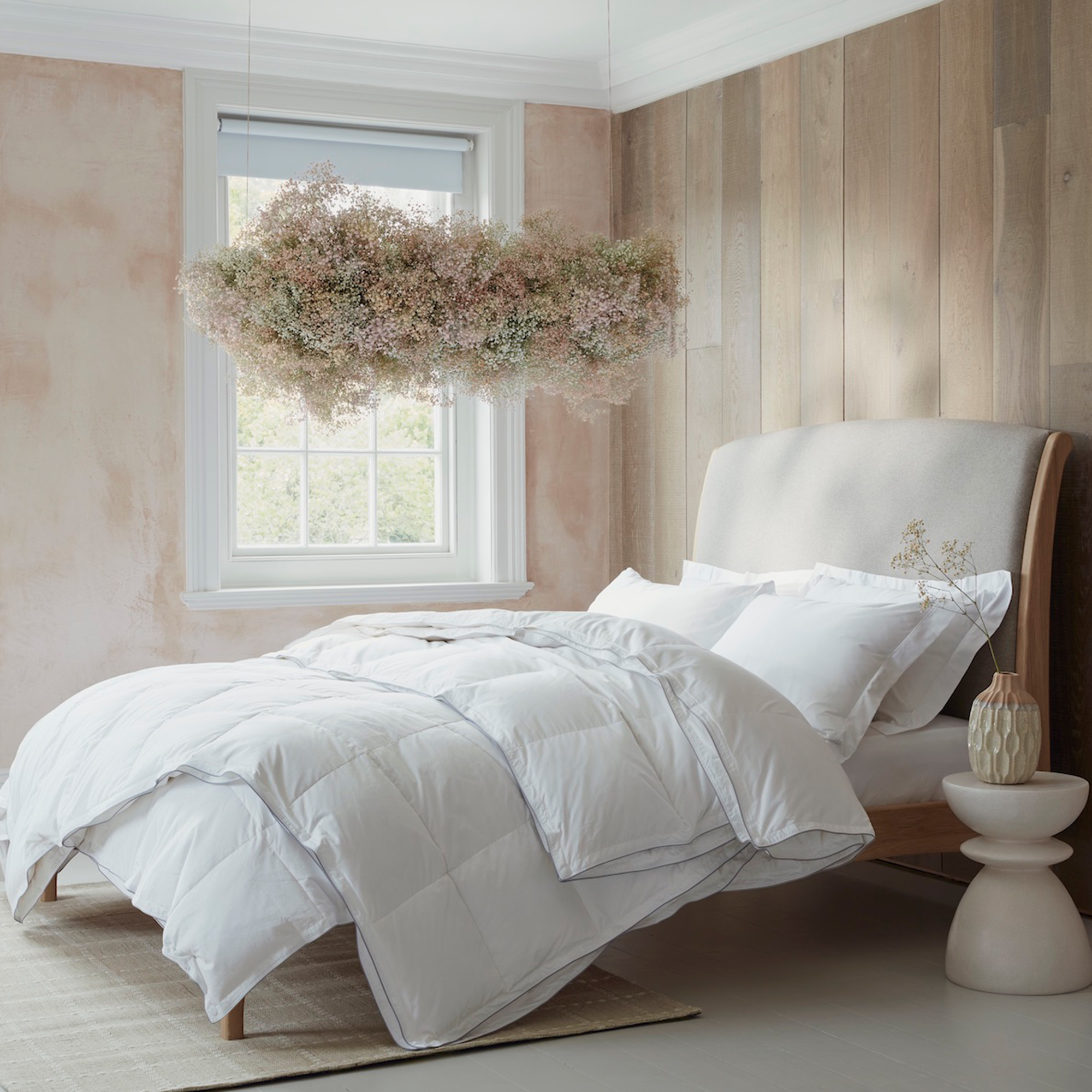
What's the best tog duvet to use year round?
Ok, so we've got our colder and warmer months covered, but what if you're looking for one does-it-all duvet? Danielle from The Find Bedding Company suggests opting for a 7 or 10.5 tog duvet depending on your body temperature, but there are other options.
'If you’re looking for a year-round duvet, then opting for an all-seasons combination would be your best choice as it offers the most versatility,' advises Emily from scooms. 'An all-season duvet is a set of two duvets, combining a lower tog duvet (ideal for the warmer months) with a higher tog duvet (ideal for the cooler months) that can be used individually or fastened together for a thicker, winter duvet.'
'Typically, a 4.5 tog duvet is paired with a 9 tog duvet giving you a summer heat duvet and a winter heat duvet, that can be fastened together to make a very toasty 13.5 tog if you need it.'
Alternatively, you can try a different filling and see if that works for you. 'Wool is a wonderful choice for a year-round duvet as it will keep you cool in the summer and warm in the winter,' offers Sophie from wool bedding brand Floks. 'Wool is a clever fibre which can trap and release heat to react to individual body temperatures.'
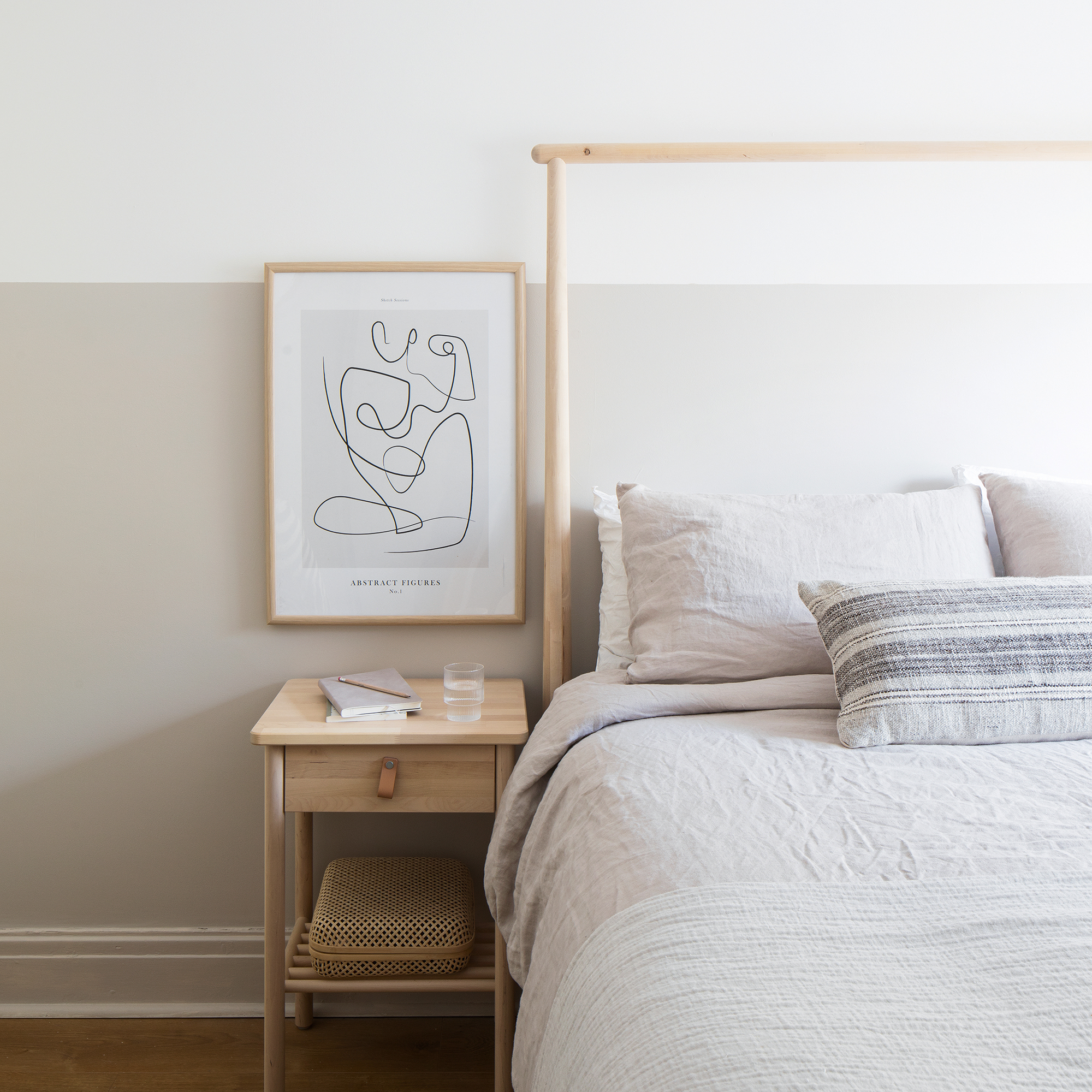
How to choose a duvet tog
Here's a quick summary of what to consider before you plump for a duvet tog:
Consider the season and room temperature: Rachael Shah, Head of Sustainability at Linen Connect, says, ‘For summer, a lighter duvet around 3-4.5 tog is ideal, as it provides comfort without excessive warmth. In contrast, for winter, a tog rating of 13.5-15 offers cosy insulation during colder nights.’ But if you don’t want to buy two separate duvets, you could opt for a dual-tog or two-in-one duvet, which allows you to combine two different togs into one duvet.
Think about your warmth preferences: Do you run hot at night? Are you always cold? Everyone has their own warmth preferences when it comes to their duvet, and some people like to be a little chilly, while others want to sweat their way through the night. Because of this, it’s important to consider your warmth preferences before buying a new duvet.
Consider the duvet filling: Your choice of filling can also affect how the duvet feels to sleep under. Duvets made from synthetic fibres, like a polyester hollowfibre or microfibre filling, tend to be the least breathable and can cause overheating if you're a hot sleeper. A good quality feather and down duvet offers good insulation and a little more breathability, and a wool duvet is the most breathable option and the best at allowing your body to regulate its own temperature during the night.
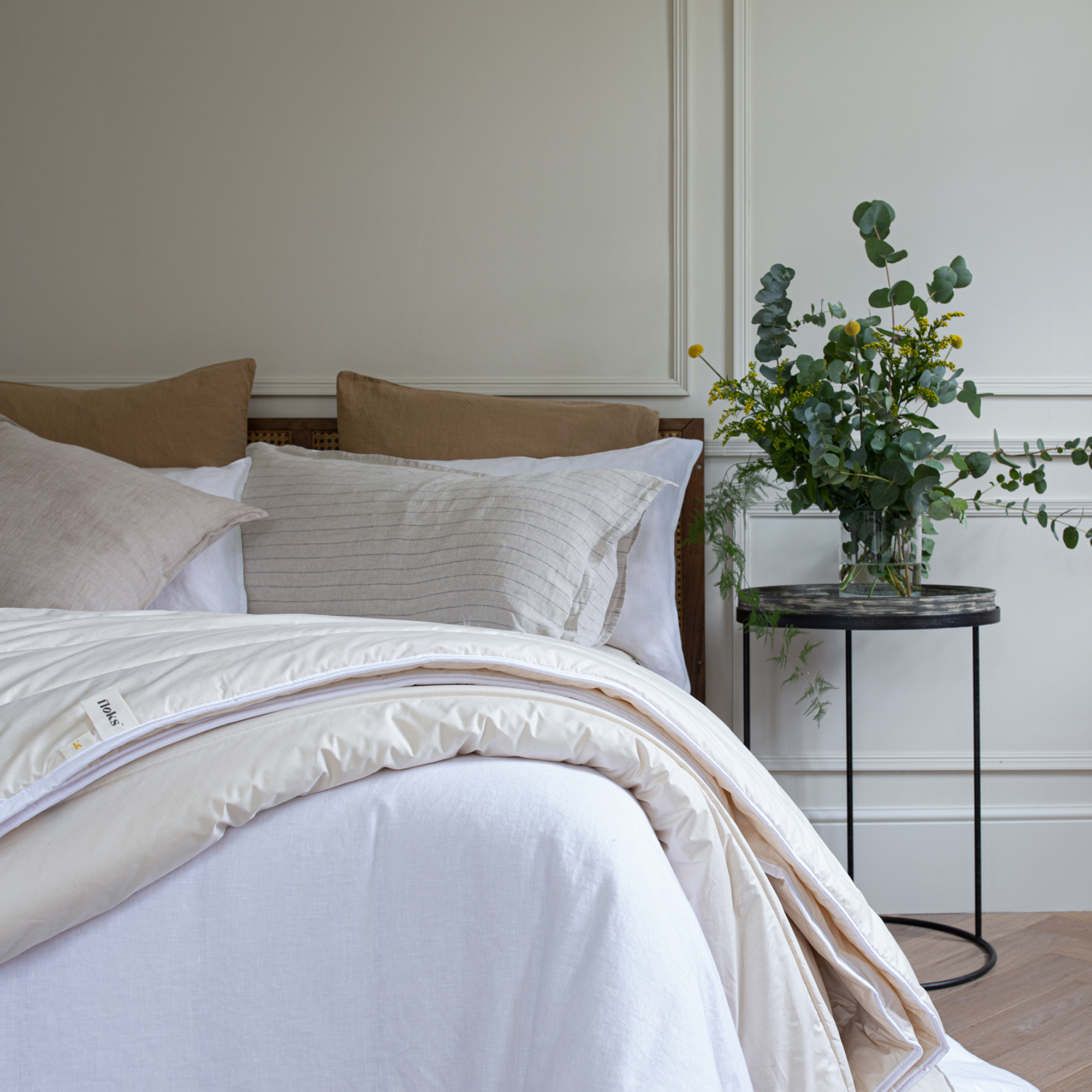
FAQs
What duvet tog should I get?
Ultimately, this is down to your personal preference. But many experts would suggest buying two duvets – a 4.5 tog and a 9.0 tog – to see you through the whole year.
This way, you can use the lighter tog during the summer months and then the thicker tog during the colder months. If you’re still cold during the depths of winter, you can then put the two duvets together to make one cosy 13.5 tog duvet.
Can you go too high with your duvet tog?
If you're a cold sleeper with a less well-insulated home then you might assume it's best to invest in the highest tog duvet possible, but, that isn't necessarily the best course of action.
'You can go too high with a duvet tog' warns Ideal Home's Sleep Editor, Amy, 'especially if the duvet filling lacks breathability, which can be the case with many synthetic duvet fillings'.
'Man-made fibres can feel stifling if you have a duvet that is too high on the tog rating,' agrees Sophie from Floks. 'They will trap your body heat and therefore it can build up to an uncomfortable degree.'
'You actually can get duvet togs up to a rating of 18 tog which will feel incredibly warm and are ideal if you live in a tent in the Arctic!,' says Emily from scooms. 'On a serious note though, the duvet warmth you go for is really down to personal choice. If you feel very cold at night and your sleep is being disturbed, then you should increase the tog rating of your duvet.'
Is a 10.5 tog duvet warm enough for winter?
A 10.5 tog duvet is one of the most popular choices as it can be used most of the year-round in the UK. However, you might find it a little too cold in the depths of winter. Everyone is different, so if you're a hot sleeper and keep your house quite warm this might be a good winter option for you, if you're a cold sleeper or your house is cooler then you might be warmer under a 13.5 tog. Or, you can always add a blanket on top of your 10.5 tog duvet on the coldest nights of the year.
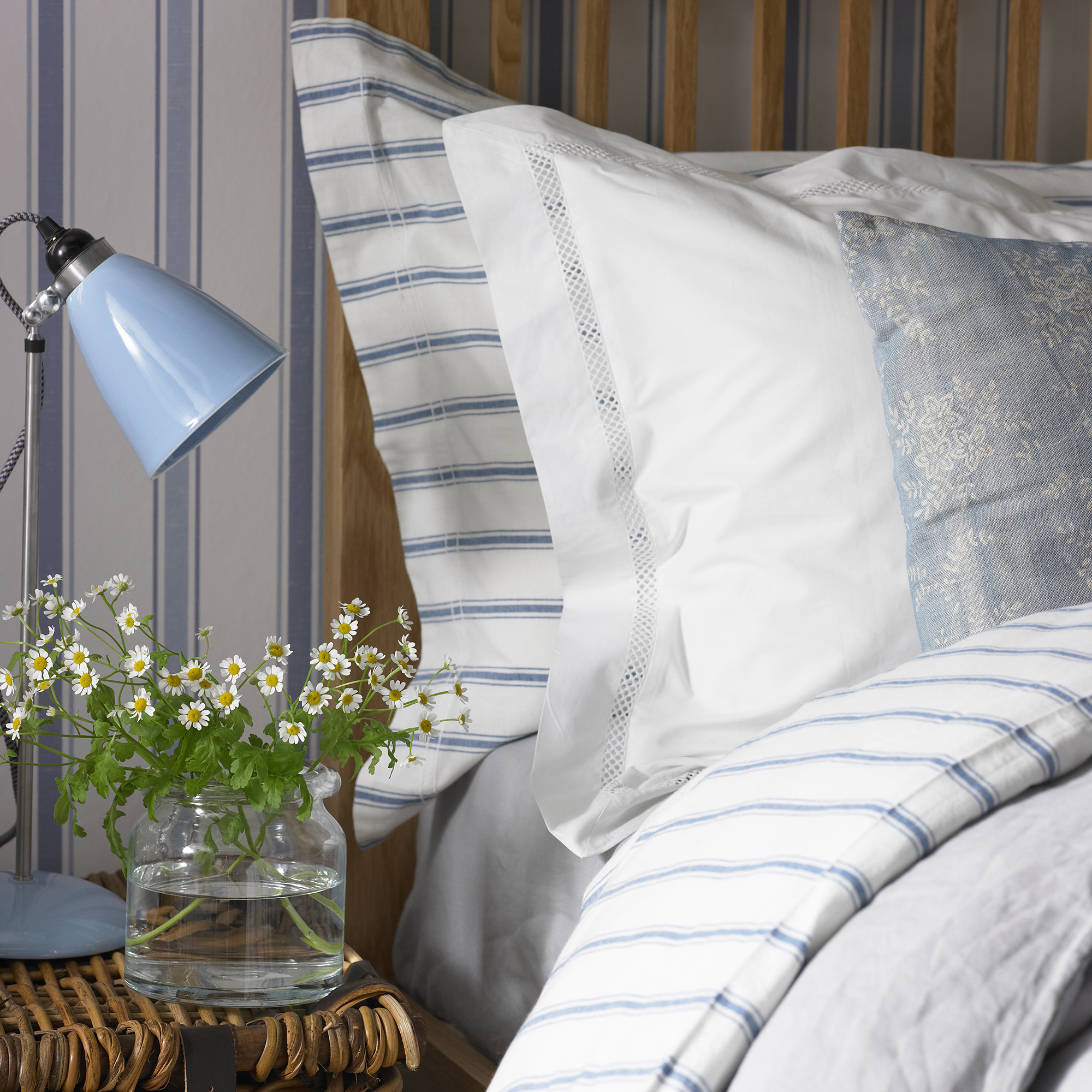
Is a 13.5 tog or 15 tog duvet best for winter?
I asked our duvet-testing expert Amy for her advice on whether a 13.5 tog or 15 tog duvet is best for winter. She says, 'I'm a hot sleeper who tends to keep my bedroom quite cool overnight – it's usually around 16-17°c – and I've always found the 15 tog duvets I've tested too warm for comfort. They're great to get cosy under at the beginning of the night, but a few hours into snoozing I find myself overheating'.
'I always recommend opting for a 13.5 tog duvet for winter instead. Although it does depend on how cold your house is. However, you can always add a blanket over the top of your duvet on particularly cold nights, or invest in one of the best electric blankets on the market to warm up the be from underneath'.
Is a 13.5 tog duvet too warm for summer?
Yes, unless you're an extremely cold sleeper or live in a very cold climate a 13.5 tog duvet is likely to be much too warm for UK summer time. A 13.5 tog duvet is best reserved for cold winter nights.
What tog duvet do hotels use?
If your aim is to make your bedroom feel like a hotel, why not follow in the footsteps of a hotel.
David Stockton, Head of Ecommerce and Marketing at hotel linen supplier Richard Haworth says, ‘Hotels will always opt for synthetic tog duvets to combat any allergies guests might have. Typically, they will opt for a 10.5 tog duvet, as this is perfect for all year round use, and hotels won't want to store different types of duvets where they can help it'.
Hopefully, we’ve provided you with all of the information you need to buy the perfect tog duvet. So, happy shopping!

Thea Babington-Stitt is the Assistant Editor for Ideal Home. Thea has been working across some of the UK’s leading interiors titles for nearly 10 years.
She started working on these magazines and websites after graduating from City University London with a Masters in Magazine Journalism. Before moving to Ideal Home, Thea was News and Features Editor at Homes & Gardens, LivingEtc and Country Homes & Interiors.
- Amy LockwoodSleep Editor
- Lauren BradburyContent Editor (House Manual)